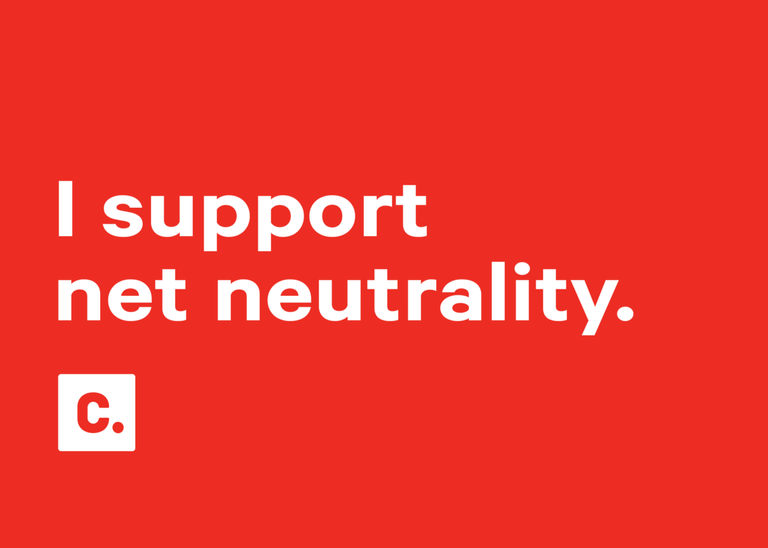
This is the "Day of Action" for Silicon Valley's mightiest forces and different supporters of the FCC's extreme unhindered net neutrality rules. Oversight is required, they say, to assurance that cable and telco web access provider doesn’t play top picks — for instance by giving speedier transmissions to some substance provider over others.
Amazon, eBay, Facebook, Google, Microsoft, Netflix, Snap, Twitter, Uber, the Ford Foundation and the Knight Foundation are among the elements approaching people to join with them in opposing restricting FCC Chairman Ajit Pai's effort push to debilitate the government capacity to secure an open internet.
"The Trump Administration's fake unhindered net neutrality scheme is a crazy delineation of the value we pay for the over the top impact of cash in legislative issues," says former FCC Commissioner Michael Copps, now an advisor guide to Common Cause. "Two years ago, a millions number of Americans rampaged on street and to the web to win historic open internet protections. They beat any semblance of Comcast and Verizon at that point, and today they are assembling for triumph again in light of the fact that there can be no bargaining on the web free discourse."
This time might be distinctive, in any event for the present. Few predict Pai or the Trump administration losing their excitement to unwind the tenets by reclassifying the web as a neatly regulated information service under Title I of Communications Act.
"We expect a final quarter vote at the FCC that reclassifies broadband under Title 1 and dispenses with the internet net neutrality rules," says Cowen and Co examiner Paul Gallant.
In any case, that might be a Pyrrhic victory.
If internet net neutrality activism spreads then it could "encourage congressional Democrats… to keep running in 2018 on the Republican elimination of unhindered net neutrality rules," he includes. That could blowback on link and telephone organizations "for whom entry of broadband regulation enactment is a ultimate Washington objective — as no one but Congress only can take out the risk of price regulation, retail value or wholesale access under a future Democratic Administration."
Telephone and Cable organizations driving the charge for Pai’s enterprise aren’t surrendering the spotlight today. They say that they bolster support net neutrality, however not the government present authority to consider them responsible in the event that they violate its principals.
"Our business rehearses guarantee full assurances for our customers and the general public, and will keep on doing so regardless of which direction the FCC at last chooses to run with its Open Internet regulation," Comcast Senior EVP David Cohen says. "The panic strategies being sought after by some groups that ISPs like Comcast will piece or throttle legal content are simply false."
Net root activism won in 2015 when the FCC reclassified the internet as a phone like administration service under Title II of the Communications Act.
The FCC rolled out the improvement after telephone and cable organizations challenged its past endeavors to set open internet [net neutrality] rules.
Here’s a sampling of some of today’s arguments:
Writers Guild of America, West:
For writers the open Internet has meant the emergence of more buyers competing for scripted content and new distribution outlets that can reach audiences around the world. It is expected that in 2017 Guild members will write as many as 100 original online series. If the 2015 open Internet rules are rescinded this dynamic growth in the digital video marketplace could come to a grinding halt. Chairman Pai’s proposal is to change the classification of broadband Internet from a public utility to an information service. This will severely limit the Commission’s ability to enforce any meaningful rules that protect the open Internet and would shift control of the content and information available to consumers online into the hands of a few giant corporate gatekeepers.
Public Knowledge:
The current net neutrality rules are working, they are popular, and they have been upheld in court challenges not once but twice. No one should have to pay an extra toll or get permission from their broadband provider to deliver their content or services to consumers online.
Google:
Today’s open internet ensures that both new and established services, whether offered by an established internet company like Google, a broadband provider, or a small startup, have the same ability to reach users on an equal playing field.
US Telecom CEO Jonathan Spalter:
When you log on today and see the “spinning wheel of doom,” keep in mind that some of the biggest and most dominant online companies in the world don’t need you to fight their battles for them, but they are asking anyway. For consumers and our economy, we don’t need a “day of action” on an issue where we all agree. Instead, we need another decade of progress—investment, constructive policy and more collaborative efforts to see broadband’s many benefits reach all Americans and protect the open internet we all deserve.
If you like my blog, kindly hit on follow button. i am a steem upvoter.
bro why no post today